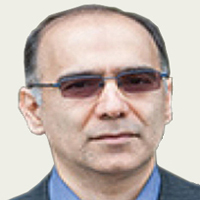The U.S. Reinterpretation of the Use of Force under Hegemonic International Law
As one of the most critical junctures in the contemporary international relations, the terrorist attacks of 9/11 played a significant role in the U.S. reinterpretation, and in many instances, redefinition of international law with regard to the use-of-force in particular. These attacks challenged the UN Charter jus ad bellum regime in matters related to counter-terrorism and the non-proliferation of weapons of mass destruction. Indeed, the events of 9/11 were the catalyst for the systematic disregard of the established international rules on the use of military force, and provided the ideal opportunity to redefine the global legal order. Moreover, a significant negative consequence of the September 11 attacks in 2001 was the emergence of a new complex and dangerous security environment that led to the revival of the use of force in international relations. Following these events, the jus cogent principle of prohibition of the use of force enshrined in Article 2(4) of the UN Charter, which the International Court of Justice in its judgment in the ‘case concerning armed activities on the territory of the Congo’, has declared as the cornerstone of the Charter, was confronted with a great threat. In responding to the events, the United States declared that the principle of the non-use of force could no longer be considered efficient against the threats originated from terrorist activities and weapons of mass destruction proliferation. Therefore, the United States announced its new national security strategy based on pre-emptive/preventive actions, and challenged the UN Charter jus ad bellum regime. Since the terrorist attacks of September 11, the American foreign policymakers have signaled that they are thinking about the U.S. hegemonic position and its leadership role in international system. One major objective of this paper is to find answers to the following research questions: 1. What has been the U.S. approach, as a dominant actor in the international system, to the use of force since the attacks of 9/11? 2. How and to what extent had the U.S. policy with regard to the use of force changed during the presidency of Barack Obama as compared to the policy of his predecessor, George W. Bush? 3. To what extent and how has the U.S. policy for the use of military force abroad influenced the international hegemonic legal order and international use of force? To provide answers to these questions, the authors use a neoclassical realist framework, which takes into consideration a combination of the external and systemic, as well as internal and unit-level factors influencing the foreign policy of states. In the hypothesis, the authors argue that the post-9/11 U.S. policy and practice regarding counter-terrorism are aimed at obtaining a special status for the discretionary use of force within a hegemonic international legal system; and this in turn has led to the widespread use of force in international relations. For hypothesis testing, the authors have relied on a qualitative content analysis of the official statements made by the top U.S. leadership, and the U.S. government’s documents such as the 2002 and 2006 National Security Strategy (NSS) of the Bush administration and the 2010 Obama’s NSS in order to gain insight into their complex security decisions regarding the coercive use-of-force instrument of foreign policy. Likewise, the relevant UN documents such as security council resolutions are analyzed to determine the legal status of the use of force in international law. The findings indicate that the 9/11 events legitimized “war on terror” in the international system, and undoubtedly led to an increase in the adoption of the use-of-force policy in international relations.
-
Investigating the role of sharing responsibility in accepting Afghan refugees in Iran with an emphasis on Islamic human rights (from 1357 to 1402)
Samira Rouhani Rankoohi, Mehdi Zakerian *, Mohammadali Abdolahzadeh
Journal of Eslamic Human Rights, -
Islamic Republic of Iran`s foreign policy in Iraq after ISIS appearance according to Responsibility to Protect Doctrine
Abbas Faqih Abdullahi, *, Mehdi, Zakarian, Hadi, Tajik
Journal of Fundamental and Applied Studies of the Islamic World,


